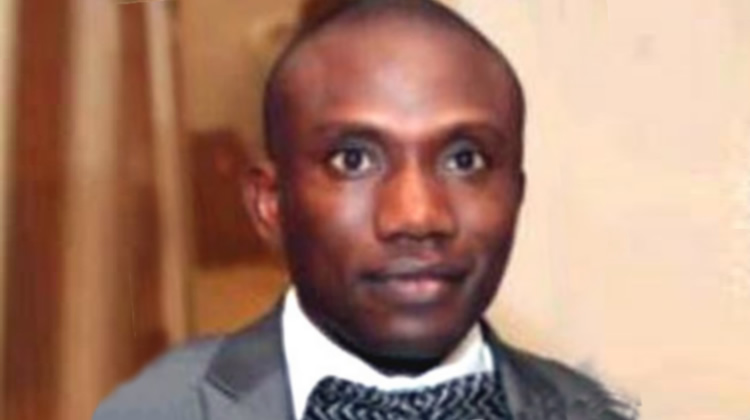
Senate President Godswill Akpabio stirred up a hornets’ nest over the weekend when he spoke about Nigerians’ perceptions of legislators. Speaking through the senator representing Ogun Central, Shuaib Salisu, at the 100th birthday colloquium of a Second Republic lawmaker, Senator Kunle Oyero, he said the legislature was the country’s most misunderstood arm of government.
Unlike his tendency to lighten everything, Akpabio spoke passionately about the disconnect between the people and their representatives. He suggested that citizens hold legislators in disdain.
Hear him: “The one arm of government that people don’t understand and is always a subject of ridicule and attack is the legislature. People sometimes don’t think legislators do anything at all.”
He tried to impugn the public impression that legislators do not add to the country and said that many things would have gone wrong without the legislature. To buttress this point, he reportedly said, “…but picture a situation where there was no legislature in 2007; there would have been a life president in Nigeria.”
Akpabio meant the bill introduced to amend the term limit in the 1999 Constitution. This bill, which would have allowed former President Olusegun Obasanjo and state governors to contest for third term in office, was defeated on the floor of the National Assembly on May 15, 2006. So, Akpabio was wrong on some fronts with this analogy. The first is that the legislative action occurred in 2006 rather than 2007. Number two, there was never an attempt to foist a life presidency on Nigeria, so it is hyperbolic and deceptive to suggest the same.
In the weeks preceding that day’s event, there was an attempt to legally amend the constitution to extend the executive’s tenure by four years, not for anyone’s life term.
While we may argue about the morality of this initiative (mainly because it was self-serving), there is nothing illegal about it. As a corollary, the National Assembly did nothing extraordinary by rejecting it. In other words, it only did the job it was elected to and had no choice but to decide one way or the other that day.
All said, however, one crucial question to ask about this event is what guided the lawmakers’ options. Did they act in the overall interest of Nigeria and its future, or was their decision to reject the term proposal based on immediate political considerations? How do Nigerians consider this event, which Akpabio now cites as a symbol of legislative excellence, with the benefit of hindsight? Would Nigeria have been better for it? But I digress.
Akpabio suggested that Nigerians misunderstand the functions of legislators. He said, “The problem is that the metric for measuring the performance of the legislators by the electorate is different from what is contained in the syllabus.”
He went further to show the people’s extraneous consideration in the assessment of legislators. According to him, “… any senator that confines himself to that will not get a return ticket even in his party because the metric of measuring the performance of legislators is the number of transformers and other material things they give to the people they are representing… ‘Distinguished Senator, my wife has put to bed,’ ‘Distinguished Senator, my mother-in-law is dead’, ‘Distinguished Senator, I want to do a freedom ceremony from my apprenticeship,” among other requests are of the things that people who truly vote measure your performances with.”
The Senate President is spot on about some of the points he made. Increasingly, the political class in Nigeria has become a victim of the pervasive poverty that citizens grapple with. For every politician, you have hundreds of constituents with varied demands on the resources of those whom they have elected to represent them. It is an aberration that should worry anyone who desires Nigeria to become truly democratic. In currying favours and support from legislators and other politicians for their subsistence, citizens mortgage their right to determine those who govern them freely. Democracy cannot grow this way.
However, Akpabio’s failure to acknowledge the legislature’s contribution to its reputational misfortune is miffing. First, the legislature is in the best position to change and shape public perception, and it must do that intentionally. So, how much does the legislature across Nigeria care about the people’s image of it through the conduct and utterances of individual members and as an institution?
Just a few months ago, Akpabio sat on his high seat, literarily gloating about some money that had been sent into the accounts of his colleagues. And when he realised that he had taken his penchant to trivialise things too far on that occasion, he reversed himself by saying he had sent prayers to the email addresses of the senators. Here, the chair of the National Assembly assumed that he fooled Nigerians. But he only exposed himself and his chambers as a body of people playing on the intelligence of Nigerians; Leaders who take the electorate for a joke!
Things are not better in the states. Two weeks ago, lawmakers in Rivers State became pawns in the hands of the immediate-past and sitting state governors. At the end of it, at least one life was lost, a section of the state House of Assembly lay in ruins, and two Speakers emerged! How more absurd can a set of leaders be? You find members of state Houses of Assembly colluding with governors to deny the legislature constitutional autonomy. This means that lawmakers reject the same thing, which would unencumber and empower them to deliver for the people who elected them. So, how would the people respect them?
There is also the sudden transformation in the standard of living of newly elected members. Once they get to Abuja and the state Houses of Assembly, they drive cars and build houses they couldn’t afford. They are also usually as insensitive as to flaunt their newly acquired status before their constituents, who, privy to their erstwhile modest or poor circumstances, are now compelled to see public office as a money-spinning venture. With that mindset, the people take their problems to their elected representatives.
But this adequately serves the capitalist politicians’ purpose of perpetually keeping the people on a leash. The truth is that poor, needy people are hardly capable of any independent thought that would make them consider progressive political options. Even though Nigeria’s Senate President made it sound like citizens cannot grasp the legislature’s role, politicians themselves fuel and benefit from the situation.
More importantly, this people’s mindset brings us to the question of what Akpabio describes as the legislature’s functions. In last weekend’s intervention at Abeokuta, he said: “The syllabus will say that as a legislator, your role is to make laws, perform oversight functions, and make appropriations; those are the three things a legislator must perform.”
So, how well do legislators perform these functions? Indeed, the constitution does not expect lawmakers to take over executive roles, but how well do they perform in executing their lawmaking, oversight, and appropriation duties?
They should make laws for the country’s good governance, but how often do they collude with the executive to circumvent those laws when they find convenient reasons? An example is the blatant abuse of the ways and means provisions by the immediate-past government!
How well do they also perform in their oversight functions? Recently, a senator justified the National Assembly’s mindless purchase of imported sports utility vehicles because of the dire state of Nigerian roads. And I wondered how scandalous that was. A body that should oversee the government’s performance justifies avarice because of the failure of the same executive that it is expected to check and balance!
Nigerians criticise the legislature for failing to understand and stay loyal to its remit. Things would not be this bad if Nigerian legislators took their constitutional duties more seriously than becoming conniving, mere consenting lame ducks. So, dear Senator Akpabio, take your duties more seriously, deliver for the people, and you will see that Nigerians are not so obtuse.





